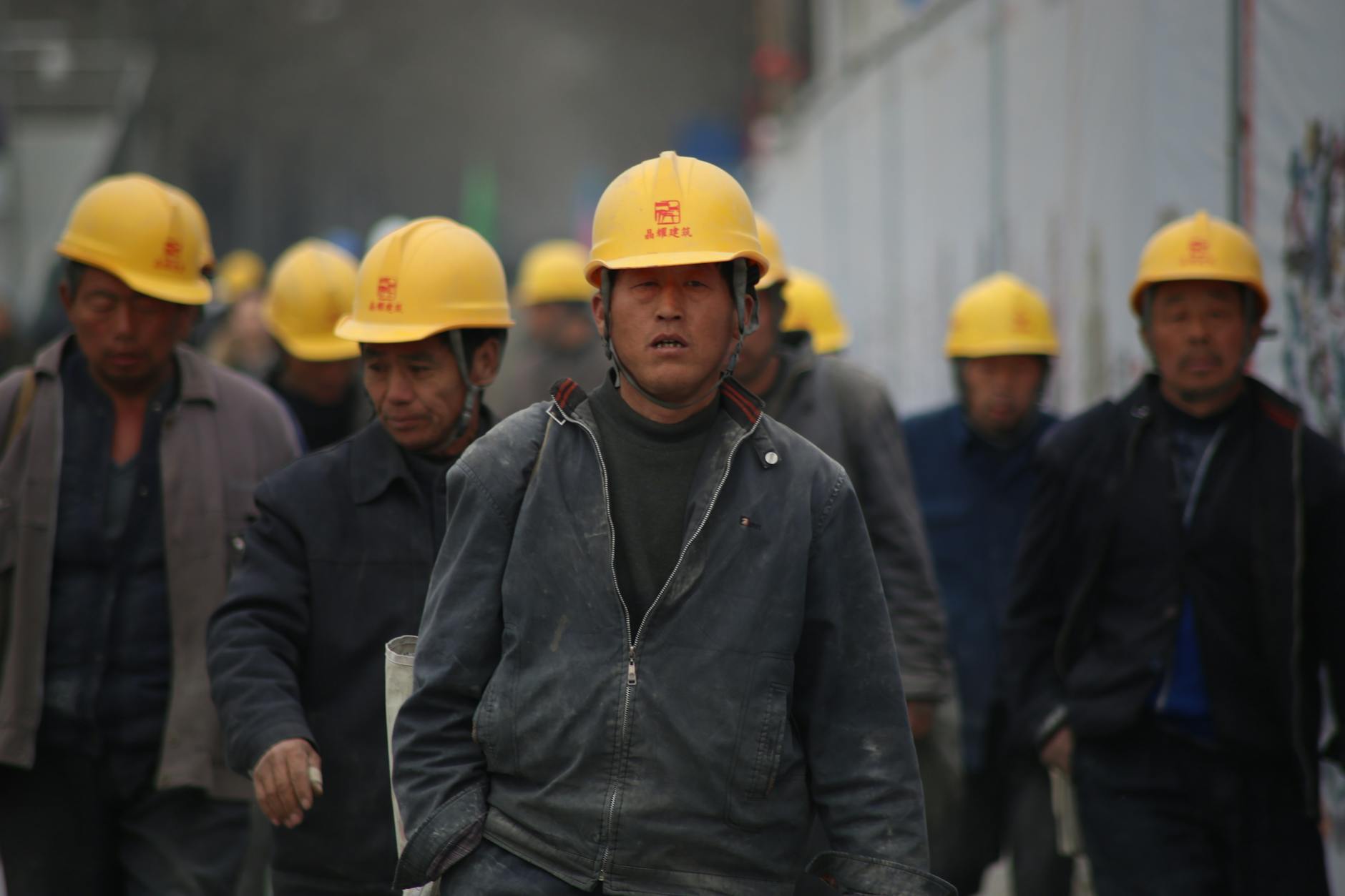
THE FACTORIES ACT 1948 Section 40 (B) Safety Officers | Download PPT
Introduction to The Factories Act 1948
The Factories Act of 1948 stands as a pivotal legislation governing the working conditions in factories across India. With a primary focus on ensuring the health, safety, and welfare of workers, this Act lays down various provisions aimed at regulating factory operations. Among its significant sections is Section 40 (B), which specifically addresses the appointment and responsibilities of Safety Officers within factories.
Understanding Section 40 (B)
Section 40 (B) of The Factories Act 1948 delineates the legal framework concerning Safety Officers in factories. This section mandates the appointment of qualified individuals to oversee and enforce safety measures within the factory premises. Its primary objective is to prevent accidents, promote a safe working environment, and ensure compliance with prescribed safety standards.
Roles and Responsibilities of Safety Officers
Appointment of Safety Officers
Factories falling under the purview of the Act are obligated to appoint Safety Officers as per the provisions of Section 40 (B). These officers are typically individuals possessing requisite qualifications and experience in industrial safety.
Duties and Obligations
Safety Officers are tasked with various duties, including conducting regular inspections, identifying potential hazards, implementing safety protocols, and conducting training programs for workers.
Qualifications and Requirements
To qualify as Safety Officers, individuals must meet specific educational and professional criteria outlined by regulatory authorities. Typically, a degree or diploma in industrial safety or related fields is required, along with relevant experience in safety management.
Importance of Safety Officers in Factories
The presence of Safety Officers plays a critical role in ensuring the well-being of factory workers. By actively monitoring workplace conditions, enforcing safety guidelines, and fostering a culture of safety awareness, these officers significantly reduce the risk of accidents and injuries.
Key Provisions under Section 40 (B)
Safety Measures Implementation
Under Section 40 (B), Safety Officers are entrusted with the responsibility of implementing and enforcing safety measures prescribed by law. This includes conducting regular inspections, maintaining safety records, and addressing any safety concerns promptly.
Inspection and Reporting Requirements
Safety Officers are required to conduct periodic inspections of factory premises to assess compliance with safety regulations. They are also responsible for preparing detailed reports highlighting any observed deficiencies or violations and recommending corrective actions.
Penalties for Non-compliance
Failure to adhere to the provisions of Section 40 (B) can result in severe penalties for factory owners, including fines and potential closure of operations. Compliance with safety regulations is thus imperative for both legal and ethical reasons.
Challenges and Limitations
Despite the importance of Safety Officers, several challenges hinder their effectiveness in ensuring workplace safety. Enforcement issues, resource constraints, and the need for continuous adaptation to evolving safety standards pose significant challenges to effective safety management in factories.
The Factory Act of 1948, a landmark legislation in India, aims to ensure the welfare, health, and safety of workers employed in factories. Within this Act, Chapter IV specifically addresses safety measures, and Section 40(B) pertains to the appointment of safety officers.Section 40(B) mandates that in factories employing a specified number of workers or carrying out certain hazardous processes, the factory management must appoint qualified safety officers. These safety officers play a crucial role in implementing and maintaining safety standards within the factory premises.The key responsibilities of safety officers as outlined in Section 40(B) include:Implementation of Safety Measures: Safety officers are tasked with implementing safety measures as prescribed by the Factory Act and other relevant regulations. This includes ensuring compliance with safety protocols, conducting regular safety inspections, and identifying potential hazards in the workplace.
Training and Education: Safety officers are responsible for organizing training programs and workshops to educate workers about safety procedures, emergency protocols, and the proper use of safety equipment. They also train workers to handle hazardous materials safely.
Investigation of Accidents: In the event of an accident or incident in the factory, safety officers are required to conduct thorough investigations to determine the causes and prevent recurrence. They must document accidents, analyze root causes, and recommend corrective actions to prevent similar incidents in the future.
Advisory Role: Safety officers serve as advisors to factory management on matters related to occupational safety and health. They provide expert guidance on safety regulations, best practices, and emerging safety trends to ensure continuous improvement in safety standards.
Emergency Preparedness: Safety officers are responsible for developing and implementing emergency response plans, including evacuation procedures, firefighting protocols, and first aid provisions. They conduct regular drills to ensure workers are prepared to respond effectively to emergencies.
Safety Committee: Safety officers often chair or participate in the factory safety committee, which comprises representatives from management and workers. They facilitate discussions on safety issues, review safety performance, and collaborate on initiatives to enhance workplace safety.
Compliance Monitoring: Safety officers monitor the factory’s compliance with safety laws and regulations, as well as any specific directives issued by regulatory authorities. They maintain records related to safety inspections, training sessions, and accident investigations to demonstrate compliance during audits.
By appointing qualified safety officers and delineating their roles and responsibilities, Section 40(B) of the Factory Act 1948 aims to promote a culture of safety and prevent workplace accidents and injuries in industrial establishments. Effective implementation of these provisions not only protects the health and well-being of workers but also contributes to the overall productivity and sustainability of the manufacturing sector.
Conclusion
In conclusion, Section 40 (B) of The Factories Act 1948 underscores the paramount importance of Safety Officers in ensuring workplace safety. By diligently fulfilling their roles and responsibilities, Safety Officers contribute significantly to preventing accidents, protecting workers’ health, and fostering a culture of safety within factories.
Scaffolding Technical Specification | Download PPT
44 HSE Interview Questions and Sample Answers | Download PDF
PSSR for Safety | Pre-Startup Safety Review (PSSR) | Download PPT
Pre-Start Task Analysis (PSTA) | Download PPT
What Safety Officer Should Do When an Accident | Download PPT
FAQs
- What are the qualifications required to become a Safety Officer?To become a Safety Officer, individuals typically need a degree or diploma in industrial safety or related fields, along with relevant experience in safety management.
- Can small-scale factories also appoint Safety Officers?Yes, small-scale factories are also required to appoint Safety Officers as per the provisions of Section 40 (B) of The Factories Act 1948.
- Are there any exemptions under Section 40 (B) of The Factories Act 1948?Section 40 (B) applies to all factories falling under the purview of the Act, with no specific exemptions outlined.
- How often should safety inspections be conducted?Safety inspections should be conducted regularly, with the frequency determined by factors such as the nature of operations and the level of risk involved.
- What steps can factories take to improve safety culture?Factories can improve safety culture by promoting awareness, providing adequate training, fostering open communication, and implementing robust safety management systems.
























